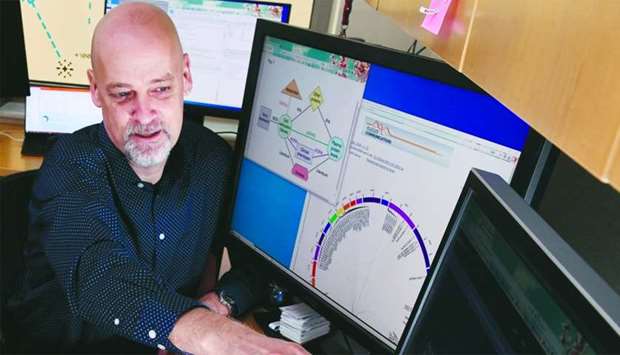Researchers at Weill Cornell Medicine-Qatar (WCM-Q) have contributed to an international study which has identified 90 genes that together determine how the human metabolism works to allow the body to rid itself of toxins via the kidneys.
The study involved researchers at institutions in Austria, Germany, the US and Qatar and has been published in Nature Genetics, a world-renowned biomedical research journal.
The laboratory of Dr Karsten Suhre, director of the Bioinformatics Core at WCM-Q, helped to analyse vast amounts of genetic and metabolic data collected from the 1,600 participants in the study, which was led by the University of Freiburg in Germany.
The research sheds light on the genes that influence metabolism and detoxification of the body via the kidneys and urine and whose roles in these processes were previously largely unknown. Given that the human organism metabolises many thousands of substances that are either ingested or formed within the body itself, these are extremely complex and difficult processes to investigate.
Dr Suhre said, “All of us at WCM-Q are extremely pleased that we were able to contribute to this important international study, which has given us great new insight into the variation between individuals in the way they metabolise substances.”
Study director Prof Dr Anna Köttgen, director of the Institute for Genetic Epidemiology at University Medical Centre Freiburg, said, “The study results will help in the future to better estimate the individual risk of metabolic diseases. In this way, those affected could adapt their lifestyle in good time.” The study brings another important finding.“Our data underline that certain medications are broken down very differently by different people,” said Köttgen. “In the future, the data could be taken into account in the personal dosage of a drug in order to optimise the effect and avoid side effects.”
The metabolic data used in the study was collected as part of the nationwide German Chronic Kidney Disease (GCKD) study. The data was collected from 1,627 participants with chronic kidney disease and included the concentrations in urine of a total of 1,172 metabolic products, also called metabolites. By measuring the different concentrations of the metabolites in the urine, doctors can gain information about the body’s metabolic and detoxification performance.

